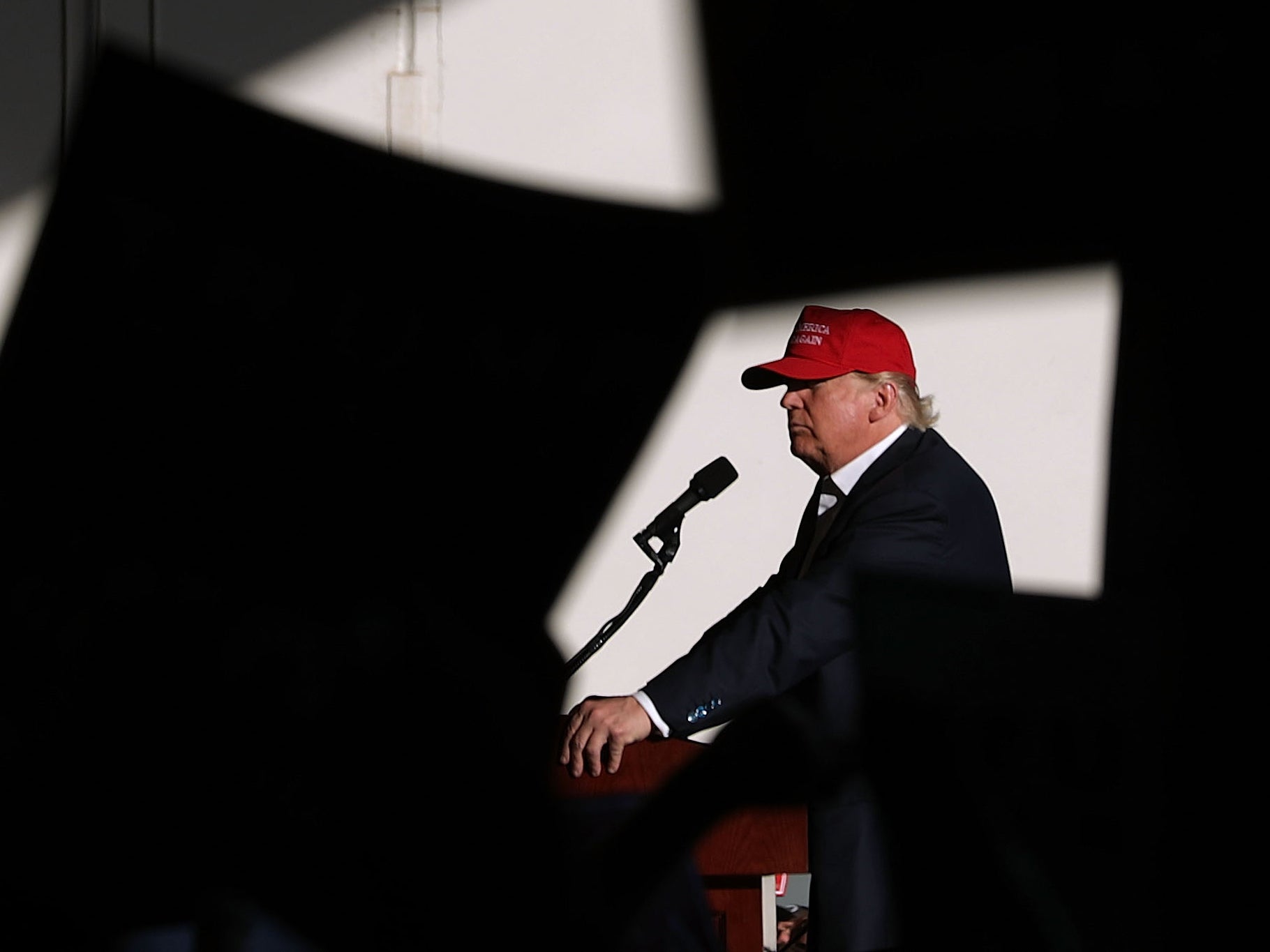What would happen if Donald Trump loses and refuses to concede the election result?
The case could be taken all the way to the supreme court, like in the case of Al Gore versus George W Bush in 2000

Your support helps us to tell the story
From reproductive rights to climate change to Big Tech, The Independent is on the ground when the story is developing. Whether it's investigating the financials of Elon Musk's pro-Trump PAC or producing our latest documentary, 'The A Word', which shines a light on the American women fighting for reproductive rights, we know how important it is to parse out the facts from the messaging.
At such a critical moment in US history, we need reporters on the ground. Your donation allows us to keep sending journalists to speak to both sides of the story.
The Independent is trusted by Americans across the entire political spectrum. And unlike many other quality news outlets, we choose not to lock Americans out of our reporting and analysis with paywalls. We believe quality journalism should be available to everyone, paid for by those who can afford it.
Your support makes all the difference.Donald Trump has said the election system is "rigged" and he would only accept the election result on 8 November if he wins.
What would happen if he did not concede the election?
Mr Trump could contest the result and take it all the way to the supreme court, according to New York University’s professor of constitutional law, Samuel Issacharoff.
"He can to court and challenge the outcome of the election," the professor explained.
"He can try to sway individual members of the electoral college to abandon Hillary Clinton in his favour - but that has pretty much never happened in American history."
If the Republican decided to not accept the result, as he has warned, then he would start his case in the federal district court and it would most likely end up in the supreme court.
"It’s [the supreme court] very unlikely to rule in his favour," said Mr Issacharoff.
"The supreme court is not in the business of overturning elections. It would act to ratify the electoral result."
There have only been three contested presidential elections in American history, in 1800, in 1876 and in 2000. Democrat Al Gore contested the 2000 election against Republican George W Bush in Florida and the issue was resolved in the supreme court one month after the election.
In 2016, Mr Trump or Ms Clinton would need 270 electoral college votes to win the election.
The electoral college - the official body that elects the president - convenes in Washington DC in January, when the new president is officially sworn in to the White House.
"I think that if Hillary Clinton gets more than 280 electoral votes, history will pass Donald Trump by with blazing speed," he said.
But Mr Trump, who has spent months inciting his followers to support the idea of Ms Clinton in prison, to "monitor" polls to "prevent voter fraud", there are still thousands if not millions of Americans who would expect Mr Trump to challenge the result if he loses.
"There are some people who still believe the earth is flat," responded the professor.
"We’re talking about marginal figures and if they engage in violence they will be dealt with the appropriate way."
Join our commenting forum
Join thought-provoking conversations, follow other Independent readers and see their replies
Comments